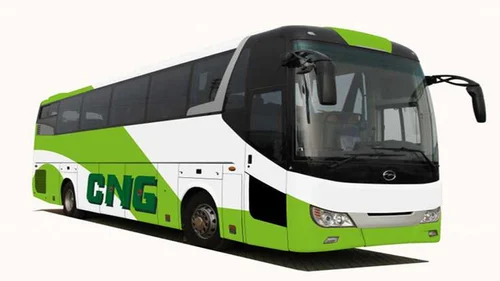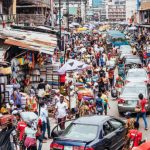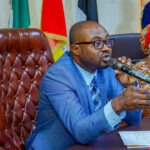Nigerian Government Unveils CNG Buses to Ease Transportation Costs
The Nigerian Government introduced 64 compressed natural gas (CNG) buses on Sunday as part of its effort to address the country’s transport challenges.
The rollout, which coincides with Nigeria’s 64th Independence anniversary, aims to reduce transportation costs and shift reliance from petrol to cleaner energy sources.
Join our WhatsApp ChannelWale Edun, the Minister of Finance and Coordinating Minister of the Economy, revealed that the buses were a step toward making public transportation more affordable for Nigerians. “This initiative,” he said, “is part of our commitment to harnessing the nation’s abundant natural gas resources and easing the transportation burden on our people.”
More Buses on the Horizon
While 64 buses were launched ahead of Nigeria’s Independence Day on October 1st, Edun explained that this is just the beginning. He assured that provisions in the 2025 budget would increase funding for such initiatives to N225 billion, compared to the N130 billion allocated in 2024.
“These CNG buses cost one-third of the price of petrol vehicles,” Edun noted, emphasising that the government’s focus is on easing the cost of transportation to combat inflation. He also hinted at future initiatives to support farmers by providing them with fertilisers and other tools to increase food production.
Federal Government’s Commitment to Cleaner Energy
Mohammed Idris, the Minister of Information and National Orientation, also commented on the importance of this initiative.
“The Nigerian Government is committed to reducing the cost of public transport by up to 60%,” he stated. Idris further explained that the government’s transition toward cleaner energy solutions is not limited to CNG buses.
“More than 600 buses, 34,000 CNG conversion kits, and 100 electric vehicles are on the way as part of our commitment to a greener Nigeria.”
READ ALSO: Nigerian Government Plans Lower Corporate Income Tax Rate To Boost Business Growth
Idris also highlighted the importance of this move for environmental sustainability. “This is part of our effort to move Nigeria away from fossil fuels to cleaner energy alternatives.”
Trade Unions Demand More Action
Despite the praise for the Nigerian Government’s efforts, some voices from organised labour believe the initiative is insufficient. Nuhu Toro, Secretary General of the Trade Union Congress (TUC), expressed concern about the small number of buses rolled out compared to the demand.
“While we appreciate the Nigerian Government for these buses, the number is a far cry from what is needed,” Toro said. “The current workforce and the general public are still grappling with high transportation costs. We urge the government to do more, and soon.”
Toro also applauded the government for its recent adjustment to the minimum wage but urged states to follow the Federal Government’s example.
A Step Toward a Better Future
Michael Oluwagbemi, CEO of the Presidential Compressed Natural Gas Initiative (PCNGI), provided insight into the larger goals of the program. He assured that the CNG initiative has already spurred growth, with more than 125 conversion centres now operational across the country. “We aim to attract as much as $75 billion in private sector investment into the natural gas sector,” Oluwagbemi said.
He also announced that an additional 2,000 CNG-propelled tricycles would be rolled out next week, starting in Abuja. “We are making great strides toward ensuring that public transportation in Nigeria is both affordable and environmentally sustainable.”
Oluwagbemi further reassured Nigerians that safety measures had been carefully considered. “We are committed to ensuring that every aspect of this program, including safety, is top-notch,” he concluded.
Looking Forward
The Nigerian Government’s CNG bus rollout represents a significant step toward alleviating the transportation crisis and addressing environmental concerns. While the 64 buses are a symbolic gesture, marking Nigeria’s 64 years of independence, government officials have promised more substantial measures in the coming years. Nigerians will be watching closely to see if these promises translate into tangible improvements in their everyday lives.
Toro, representing labour interests, voiced optimism. “We have always said that Nigerians are easy to manage. If the Nigerian Government continues this way, we will see more people talking positively about it.”
As the Nigerian Government continues its efforts to transition to cleaner energy and invest in public transport, citizens hope these initiatives will bring much-needed relief from the current economic challenges.
Emmanuel Ochayi is a journalist. He is a graduate of the University of Lagos, School of first choice and the nations pride. Emmanuel is keen on exploring writing angles in different areas, including Business, climate change, politics, Education, and others.
- Emmanuel Ochayihttps://www.primebusiness.africa/author/ochayi/
- Emmanuel Ochayihttps://www.primebusiness.africa/author/ochayi/
- Emmanuel Ochayihttps://www.primebusiness.africa/author/ochayi/
- Emmanuel Ochayihttps://www.primebusiness.africa/author/ochayi/


















Follow Us